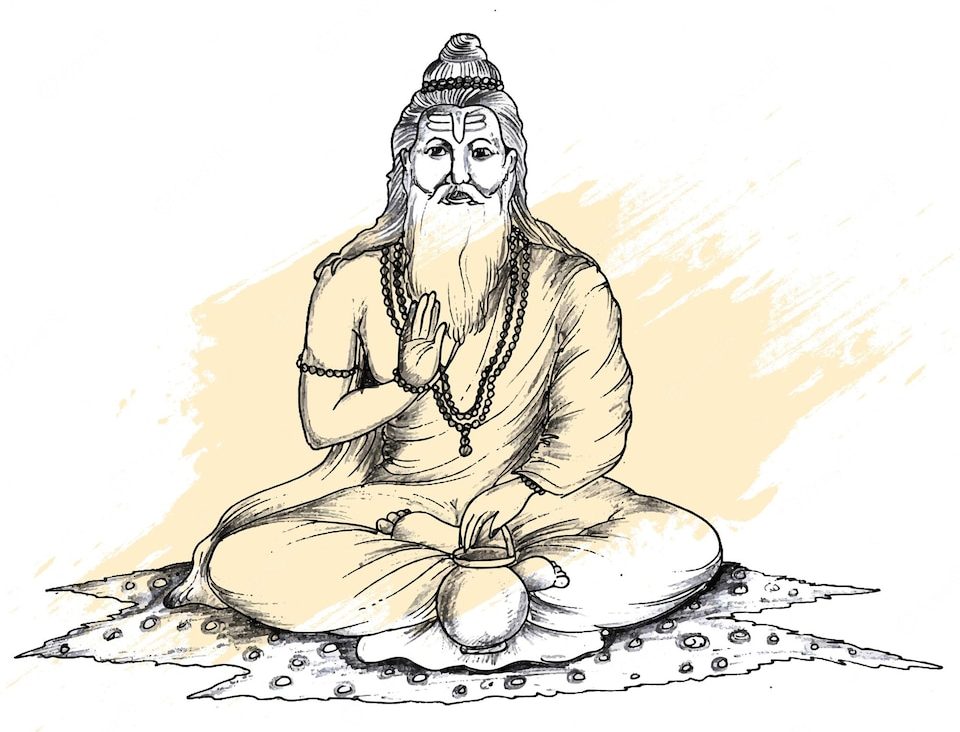
Maharishi Dadhichi
The Sage of Selflessness and Sacrifice
Introduction:
In the annals of ancient Hindu mythology, Maharishi Dadhichi shines as an epitome of selflessness and devotion. Renowned for his ultimate sacrifice, where he willingly gave up his own body to create the powerful Vajra (thunderbolt) weapon, Maharishi Dadhichi’s story resonates as a testament to his unwavering commitment to the greater good. His selfless act and profound spiritual journey have left an indelible mark on Hindu culture.
Early Life and Education:
The early life of Maharishi Dadhichi is steeped in mystery, with limited information available. According to mythology, he was born as a divine being, a son of the sage Atharvan. From an early age, he displayed exceptional qualities and a keen intellect. It is believed that he received a comprehensive education in the sacred scriptures, philosophy, and spiritual practices from his father and other renowned sages of the time.
Career as a Sage and Teacher:
Maharishi Dadhichi dedicated his life to spiritual pursuits and became a revered sage and teacher. He delved deep into meditation and self-discipline, attaining profound spiritual insights and wisdom. His teachings emphasized virtues such as compassion, selflessness, and devotion, inspiring seekers to tread the path of righteousness.
Relationship with Gods:
Maharishi Dadhichi’s relationship with the gods is intertwined with his ultimate sacrifice. According to Hindu mythology, the gods approached him seeking his help in their battle against the demon Vritra, who was causing havoc and obstructing the cosmic order. Recognizing the gravity of the situation, Maharishi Dadhichi selflessly offered his own body to create the Vajra, an invincible weapon that could defeat Vritra. His sacrifice exemplifies his unwavering dedication to serving the gods and upholding the cosmic harmony.
Other Disciples:
While the scriptures do not extensively mention Maharishi Dadhichi’s disciples, it is believed that his teachings and wisdom attracted seekers who sought his guidance. His profound spiritual insights and selfless example undoubtedly influenced those who came into contact with him, leaving a lasting impact on their lives.
Contributions to Hindu Culture:
Maharishi Dadhichi’s contribution to Hindu culture lies primarily in his ultimate sacrifice and the creation of the Vajra weapon. His selflessness and devotion in giving up his own body for the greater good serve as an inspiration to generations. His story highlights the importance of sacrifice, courage, and unwavering commitment to righteousness, resonating with the core values of Hindu culture.
Legacy:
Maharishi Dadhichi’s legacy is firmly entrenched in Hindu mythology and culture. His selfless sacrifice and profound spirituality continue to inspire individuals to transcend their personal desires and work towards the collective well-being. His story serves as a reminder of the power of selflessness and devotion in the face of adversity.
Books Written by Him:
While specific books written by Maharishi Dadhichi are not mentioned in the scriptures, his teachings and story are found in various Hindu texts and epics, such as the Puranas and the Mahabharata.
Conclusion:
Maharishi Dadhichi’s life and sacrifice are a testament to the heights of selflessness and devotion that can be attained in the pursuit of righteousness. His early life and education remain shrouded in mystery, but his career as a sage and teacher left an indelible impact on Hindu culture. His relationship with the gods and his ultimate sacrifice exemplify the profound spiritual insights he possessed. Maharishi Dadhichi’s legacy continues to inspire individuals to embrace selflessness, courage, and unwavering commitment to the greater good. His story remains a cherished part of Hindu mythology and serves as a beacon of light for those on the path of spiritual growth and service.
Editor – Kaalchakra Team
[ Note – Before Concluding anything as a Finale, Please Go through Original Scriptures of Vaidik Literature Written in Sanskrit and Also with Meaning of That time of Language. Because English is a Limited language to Explaining the Deeper Knowledge of Vaidik Kaal. ]
